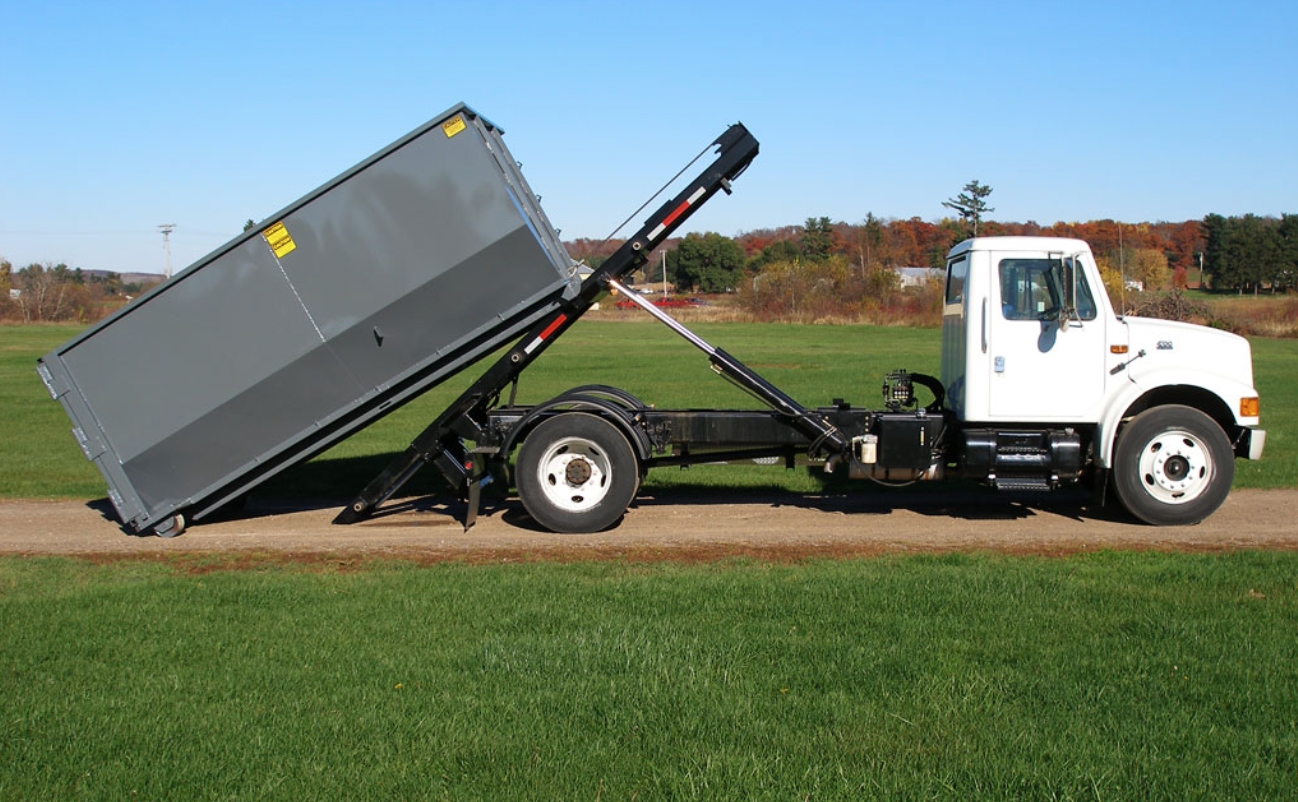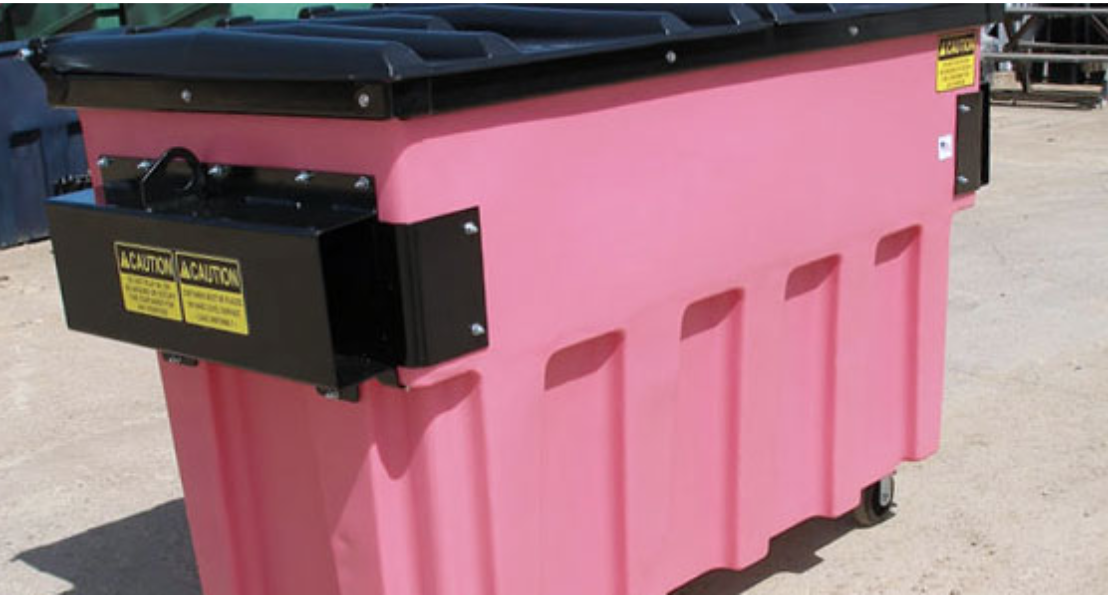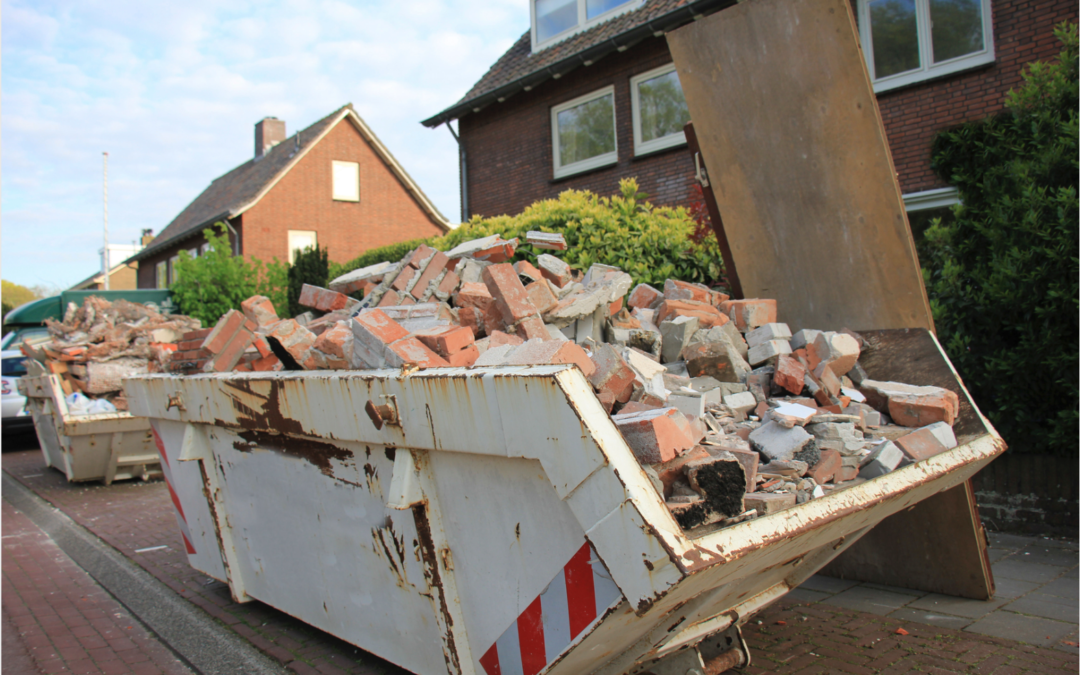Want to know how to start a roll-off dumpster rental business?
Your success hinges on your ability to plan thoughtfully before you make the plunge. That means:
- Conducting market research to ensure the opportunity is there
- Calculating your roll-off business start-up costs
- Identifying your niche in the marketplace
- Exploring complementary add-on waste management services
- Purchasing your roll-off trucks, trailers, and dumpsters
- Effectively marketing your roll-off business
- Investing in critical business relationships, like your landfill operators
- Being diligent about workplace safety and compliance
Ready to dig in? Let’s go.
Research your local waste management market
A roll-off business is an inexpensive way to gain entry into the waste management industry—provided there’s a place for you.
Is your area underserved?
We recommend completing a SWOT analysis. That means, identifying the Strengths and Weaknesses of your business and the Opportunities and Threats to its success.
How?
Call every roll-off dumpster business in the yellow pages and do some gumshoe detective work. Find out which services they offer. Inquire into their rates and their available dumpster sizes.
Is there an opportunity to support residential remodeling businesses? Could you serve difficult-to-access urban areas with smaller, more maneuverable roll off dumpsters?
Next up, scan the Interwebs for local roll off business reviews.
Do customers seem genuinely happy with the service they’ve received? If there’s a pool of unhappy customers, you might be able to dazzle them with outstanding service.
The key is to identify the niche opportunities that are ripe for the taking.
Determine your start-up capital and operational expenses
Can you afford to make the leap?
Your market research helped you assess the current market rate for dumpsters by size and rental period.
The next step is to determine if you can afford to purchase the necessary start-up roll-off equipment and deliver competitive rates without putting yourself out on the street.
Starting out with a used truck already equipped with a roll-off hoist is most likely going to be your best bet. And, they’re out there. In fact, when our customers upgrade their equipment, they post their used vehicles with us all the time.

You’ll also need a roll-off trailer and dumpsters.
As you’re scoping out the start-up costs, don’t forget to factor in maintenance costs, equipment replacement costs, landfill dump rates, truck insurance, and the fuel required to operate.
You’ll also need to consider staffing.
At the outset, will you run the business entirely on your own—or will you hire a driver or a person to handle calls? If it’s the latter, those are staffing expenses you’ll have to factor into the equation, as well.
And, don’t forget marketing, of course. How is the competition marketing its services? How much would it cost to get your foot in the door?
With a lot of searches now happening online, you’ll want to invest in a simple, mobile-friendly website and some digital advertising.
Okay, you’ve tallied up your start-up and monthly operating costs. How much do you need to profit from every roll-off container you purchase? Is this doable? Is it sustainable?
Carve out your market niche in the roll-off industry
Starting a stand-out roll-off business begins with defining what types of opportunities you’d like to see walk through your door.
Carving a niche allows you to attract the customers you want and also gives you a competitive edge. And, due to high-corporate overhead, larger firms often can’t compete with the prices offered by smaller, more local roll off businesses, like yours.
When choosing a niche to specialize in, consider sites where larger trailers can’t easily fit or run the risk of damaging the property. For example, roll off dumpsters are well-suited for:
- Residential construction/renovation projects
- Demolition
- Roofing
- Yard waste
- Junk removal
- Bulk disposal
Identifying potential customers is simplified when you think in terms of these niche opportunities:
- Real estate agents often need roll-off disposal services when preparing foreclosed properties for sale
- Landlords may be seeking roll-off dumpsters to clear our tenant debris in their rental properties
- Contractors and do-it-yourselfers regularly use disposal services for renovations and yard waste removal
Explore complementary services for your dumpster business
Another way to gain a competitive advantage is to find complimentary services you might offer your customers. And, the best way to uncover these diversification opportunities is to listen to your customers and understand their needs.
Have you considered delivering portable restrooms to your construction clients? What about offering hazardous waste disposal as a way to open up a new stream of recurring business?
If construction is booming in your area, diversifying your services by adding non-construction revenue streams can also serve as a safeguard against an unforeseen economic downturn.
Remember, the greatest value you can provide your customers is excellent service, of course. So, don’t get carried away competing with the uncontrollable prices of competitors in your niche. Research the industry averages for pricing in your region and set your prices low enough to make a profit after covering your operating costs.
Make intelligent roll-off equipment purchasing decisions
Once you’ve determined the type of work you’ll be doing and for whom, it’s time to shop around for the necessary equipment.
Choose your equipment based on what you plan to haul, under what conditions, and in which environments. It’s safe to say, nearly every roll off startup will need to begin with the basics, including:
- A roll-off truck
- A roll-off trailer
- A roll-off hoist
- Roll-off dumpsters

What sizes and types of roll off dumpsters should you purchase?
This all comes down to what you plan to haul. For example, a 15-yard or 20-yard roll-off will easily fit in a smaller space. If you plan to haul liquids, hazardous materials, or heavy loads, that will also dictate the type of equipment you need.
It’s important that you feel comfortable with the size of your initial investment, and that you plan for scalability. Beginning with a small number of roll-off trucks and dumpsters helps you minimize costs while giving you the freedom to purchase additional equipment as your business grows.
Operate your roll-off business like a pro
The ease of operating your roll-off business boils down to three things: creating visibility, building strong relationships, and minimizing risks.
For starters, you’ll want to launch a website. Without a digital presence, you just don’t exist in this day and age. The good news is you can do that yourself without breaking the bank.
You’ll also want to explore the branded decals that can help generate new business. While this is a cheap, simple way to market your roll-off business, it’s an opportunity that often gets missed.
So, you have a happy customer. What next?
Ask if they’d be willing to provide a testimonial you can use on your website and marketing materials.
Be sure to make an effort to maintain good connections with these neighborhood associations, realtors, and contractors. Recurring customers and referrals are often the most reliable sources of new business.
Also, don’t overlook your partnership with landfill operators. A great partnership is guaranteed to help your bottom line. Once you’ve built a solid rapport, you can usually negotiate per-ton rates, which are savings you can pass along to your customers.
Another thing you shouldn’t overlook: safety.
Safety and compliance should be a priority, not an afterthought. So, do your research and pay attention to the required permits and inspection processes. A small mistake relating to improper loading, securement, placement, and disposal can be both dangerous and costly.
Now you’re ready
Any successful roll-off business owner will tell you that, in the end, it was hard work that drove their success. Give your business time to grow, even if you’re forced to reinvest your initial profits.
A great deal of the value you’ll provide your customers is your wisdom in waste management—and that only comes with experience. In the meantime, some good old-fashioned preparedness and a solid base of happy customers should be enough to get you on the path to growth.

